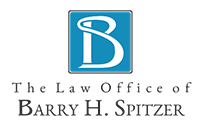The discharge of debts in Chapter 13 works differently than in Chapter 7. If you file a Chapter 13 “adjustment of debts” case, you also get a discharge of your debts, which occurs at the end of your case, usually 3 to 5 years after the case is filed. A Chapter 13 discharge is different a number of ways.
1. Timing of Discharge of Debts
Let’s start with this long delay in the discharge. When filing a Chapter 7 case you usually have two main goals:
* Stop collection activity by your creditors, such as lawsuits and garnishments.
* Discharge those debts that can be discharged, and to do so quickly.
Filing Chapter 13 stops creditor collection activity just as fast and as thoroughly as under Chapter 7. In fact, it’s often better because it’s more effective against certain kinds of debts, such as unpaid child/spousal support. There’s also a co-debtor stay, stopping collections against co-signers, available only under Chapter 13. And with debts that cannot be discharged, such as many tax debts, you can stop the collection actions for years, not just for a few months as would be the case in a Chapter 7. As for the long delay in getting the discharge, that’s usually not much of a practical problem because most of the creditors cannot do anything about it in the meantime. Their debts are stuck in limbo. Since your creditors can’t chase you in the meantime, there is no risk of harm.
2. Conditioned on Successful Completion
There is no discharge of your debts at all, unless you successfully complete your Chapter 13 case. That is also true in Chapter 7. However, it is quite rare that a Chapter 7 case is not completed, while it is much more common with Chapter 13 cases. There is just so much more that can go wrong in a Chapter 13 payment plan. And there’s so much more time for things to go sideways. So as you consider filing a Chapter 13 case, know that you have to see it through to the end.
3. Discharge after Partial Payment of Debts
Under Chapter 7 most debts are either discharged completely or they are not discharged at all. Most debts are discharged completely. Certain debts, like recent income taxes and child/spousal support, are not. Student loans do not receiv e a discharge, unless a Court determines that paying on the student loan obligation is an “undue hardship.” A separate lawsuit, called an Adversary Proceeding, would need to be brought by the debtor to obtain this determination. In contrast, under Chapter 13 you must pay as much of your debts as you are able over a 3-to-5-year period. This usually means you pay something on most or all of your debts. Then you get a discharge of the remaining portions at the end of your case. But the portion of the debts that you pay during the case can be quite small. In many Chapter 13 cases, most of the debtor’s disposable income would go towards special debts. The payment plans usually focus on dealing with secured and “priority” debts, for instance, catching up on a home mortgage arrearage or a vehicle loan. Or you are getting current on back child support or income taxes. The rest of your unsecured creditors only get what money is left over, which is often just a small percentage of what you owe to those other unsecured creditors. So at the end of the case, you might discharge most of what you owed on your unsecured debts.
Sometimes, your payments plan dedicates ALL of your disposable income on special debts, such as mortgage arrears, taxes and family support arrears. In those circumstances, you pay nothing at all on the rest of your debts. These debts are just kept on hold during the course of your case, they receive nothing from you, and their entire debt is discharged at the end of the case.
4. Divorce property settlements
Divorce property settlements and decrees can be discharged in a Chapter 13 case, but cannot be discharged under Chapter 7. That’s the part of the divorce that divides up the marital assets and debts. Conclusion Chapter 7 and Chapter 13 both end with a discharge of debts. But as you can see these discharges play out quite differently, reflecting the differences in these two bankruptcy options.

